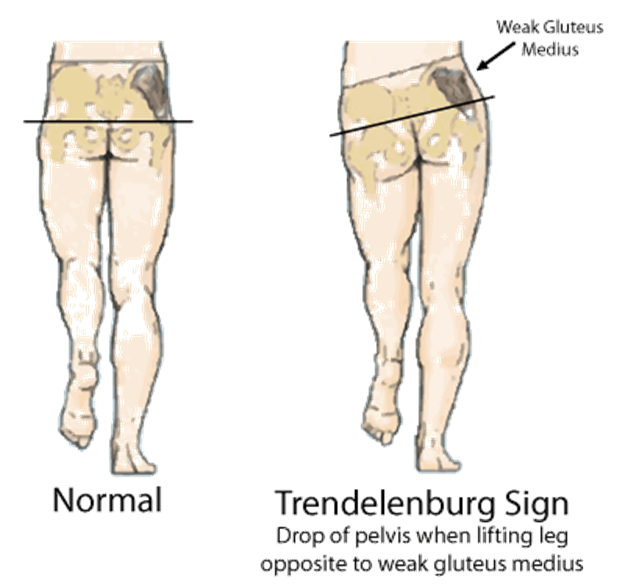Hyperglycemia is harder to detect in older adults due to which of the following?
The classic signs of elevated glucose levels, polyuria, polyphagia, and polydipsia are rarely present in older adults
Older adults tend to metabolize glucose at a faster rate than younger adults
Fingerstick glucose monitoring is inaccurate in older adults
There is a higher tolerance for elevated levels of circulating glucose in older adults
The Correct Answer is A
Choice A reason: The classic signs of elevated glucose levels, polyuria, polyphagia, and polydipsia are rarely present in older adults is true because older adults may have impaired thirst sensation, reduced appetite, or altered renal function that can mask these symptoms. They may also have other chronic conditions or medications that can affect their glucose levels or urine output.
Choice B reason: Older adults tend to metabolize glucose at a faster rate than younger adults is false because older adults usually have a slower metabolism and a reduced insulin sensitivity that can impair their glucose regulation. They may also have less muscle mass and more fat tissue that can affect their glucose utilization.
Choice C reason: Fingerstick glucose monitoring is inaccurate in older adults is false because fingerstick glucose monitoring is a reliable and convenient method to measure blood glucose levels in older adults, as long as they follow the proper technique and calibration. They may also benefit from using devices that have larger displays, voice output, or memory functions.
Choice D reason: There is a higher tolerance for elevated levels of circulating glucose in older adults is false because elevated levels of circulating glucose can cause serious complications in older adults, such as cardiovascular disease, kidney disease, nerve damage, or infections. Older adults may have a higher risk of developing these complications due to their age, comorbidities, or frailty.
Nursing Test Bank
Naxlex Comprehensive Predictor Exams
Related Questions
Correct Answer is ["A","B","C"]
Explanation
Choice A reason: This is a correct answer because heart failure is a condition in which the heart cannot pump enough blood to meet the body's needs. This can cause fluid retention and congestion in the lungs, kidneys, and other organs. Heart failure can also affect the thirst mechanism and the secretion of antidiuretic hormone, which can lead to reduced fluid intake and increased fluid loss. Therefore, heart failure can increase the risk of dehydration in older clients.
Choice B reason: This is a correct answer because nonfunctional impairments are limitations in the ability to perform activities of daily living, such as bathing, dressing, or toileting. Nonfunctional impairments can be caused by various factors, such as cognitive decline, mobility problems, or sensory loss. Nonfunctional impairments can affect the access to fluids, the awareness of thirst, or the ability to swallow. Therefore, nonfunctional impairments can increase the risk of dehydration in older clients.
Choice C reason: This is a correct answer because longitudinal furrows on the tongue are signs of dehydration in older clients. The tongue is a mucous membrane that can reflect the hydration status of the body. Dehydration can cause the tongue to lose its moisture and elasticity, and develop cracks or fissures along its length. Therefore, longitudinal furrows on the tongue can indicate dehydration in older clients.
Choice D reason: This is an incorrect answer because hypertension is not an issue that might put your client at risk for dehydration, but rather a complication of dehydration. Hypertension is the elevation of the blood pressure above the normal range, which can damage the blood vessels and increase the risk of cardiovascular disease. Hypertension can be caused by various factors, such as aging, obesity, smoking, stress, or kidney disease. Dehydration can also cause hypertension, as the loss of fluid can reduce the blood volume and increase the blood viscosity and concentration of sodium. Therefore, hypertension is not a risk factor for dehydration, but a consequence of dehydration.
Correct Answer is C
Explanation
Choice A reason: Aphasia is a language disorder that affects the ability to communicate, not the ability to walk or balance.
Choice B reason: Traumatic brain injury (TBI) is caused by external forces, such as a blow to the head, not by internal factors, such as diseases or deficiencies.
Choice C reason: Gait disturbances are problems with walking or balance that can result from neurological damage affecting the motor system.
Choice D reason: Postprandial hypotension (PPH) is a drop in blood pressure after eating that can cause dizziness or fainting, but it is not directly related to neurological damage.
Choice E reason: Fallophobia is a fear of falling or heights, not a condition caused by neurological damage.

Whether you are a student looking to ace your exams or a practicing nurse seeking to enhance your expertise , our nursing education contents will empower you with the confidence and competence to make a difference in the lives of patients and become a respected leader in the healthcare field.
Visit Naxlex, invest in your future and unlock endless possibilities with our unparalleled nursing education contents today
Report Wrong Answer on the Current Question
Do you disagree with the answer? If yes, what is your expected answer? Explain.
Kindly be descriptive with the issue you are facing.
